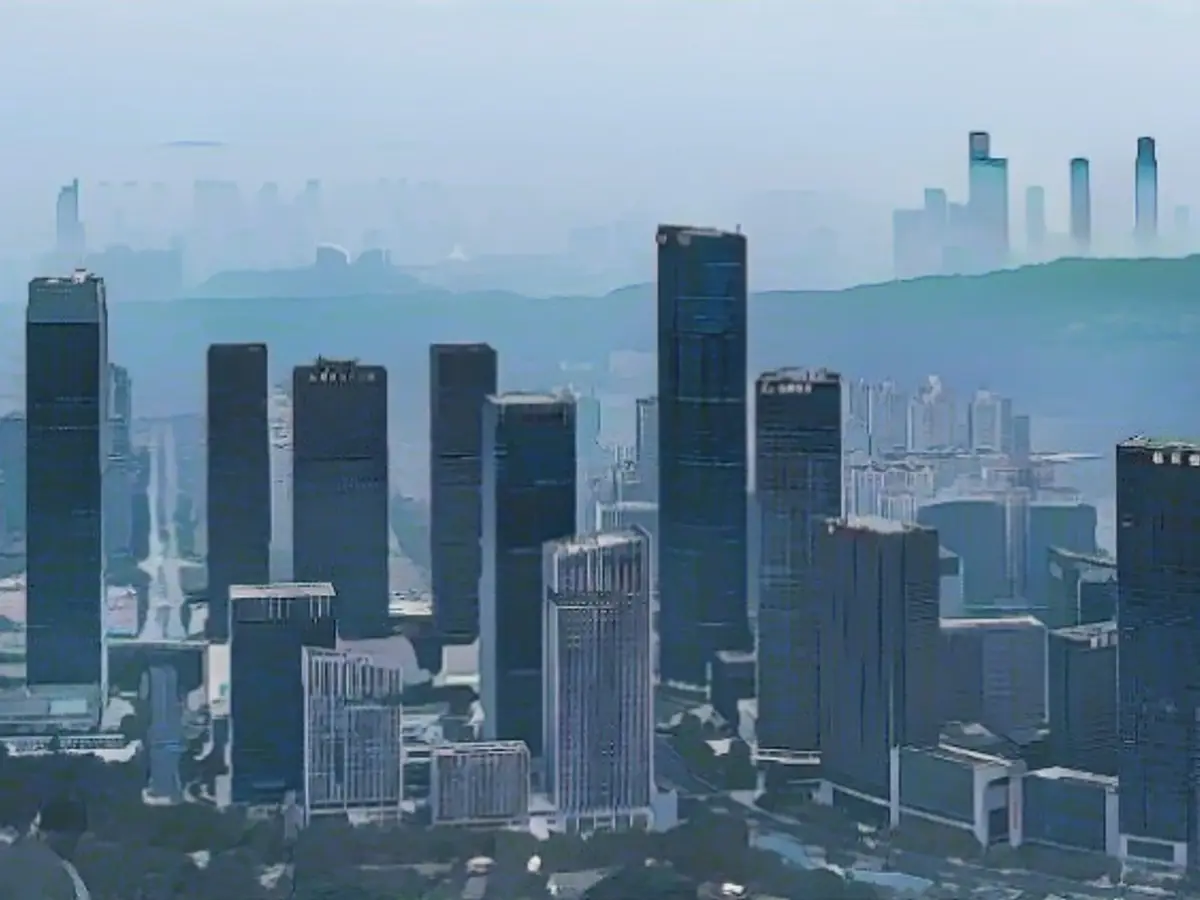China's economy faces a year of uncertainty
A smoldering real estate crisis, weakening consumption and geopolitical tensions: The second largest economy is struggling with many problems. But China wants to ensure growth again. Observers are expecting new measures from the leadership in Beijing.
At the beginning of 2023, relief was palpable everywhere in China. After three years of tough coronavirus measures with lockdowns and strict controls, normality was returning. People reacted with "revenge consumption", as the party newspaper "Global Times" euphorically put it in January. However, the boom after the end of the pandemic did not last long. Twelve months later, China's economy is facing uncertainties at the start of the new year.
The initial joy of regained freedom after the pandemic gave way to other concerns. Above all, the ongoing real estate crisis is a major concern for the Chinese middle class. Their savings are tied up in apartments, which for a long time only went up in value. Now prices are falling.
The turbulence among the major real estate developers in China, who are no longer able to service their debts, is causing uncertainty. Evergrande alone, the country's largest developer, has accumulated debts of over 300 billion dollars. As a result, many people are holding on to their money. The engine of the second largest economy is stuttering - and this is unlikely to change much in the new year.
Youth unemployment at a high
The authorities have taken measures to stimulate the housing market, including lowering the minimum requirements for house buyers and mortgage interest rates in some cities. Despite these efforts, there are few signs of recovery. "The government has taken measures, but they are not strong enough," says Liu Shengjun, chief analyst at Chinese think tank Guoshi Financial Reform.
"Stronger consumption is essential for the economy to improve significantly in 2024," says Max Zenglein, Chief Economist at the Merics China Institute in Berlin. However, regaining confidence is unlikely to be easy in this environment. There is growing unease, especially among young Chinese. Companies that are unsettled by the economic situation are hiring less. At the same time, a record number of university graduates are entering the labor market. In the summer, youth unemployment reached an all-time high of over 20 percent. Beijing then simply abolished the relevant statistics.
As if the domestic problems were not enough, Beijing is also facing geopolitical challenges. The trade dispute with the USA is still raging, including over high-tech products such as computer chips. The West is increasingly perceived as a threat in Beijing.
Chamber of Commerce: only a few companies want to enter the market
German companies also need to rethink. "Due to geopolitical tensions, German companies are making their supply chains, investments and business areas storm-proof. Chinese companies are rapidly catching up and scoring points with innovation and speed," says Jens Hildebrandt, Managing Director of the German Chamber of Commerce (AHK), summarizing the situation. Only a few companies want to enter this complex market. "Those that are already here are staying," says Hildebrandt. China is and remains the most important growth market for many German companies.
However, Beijing must make greater efforts to attract foreign capital. The recent lifting of the visa requirement for German citizens shows that China is making an effort. Nevertheless, contradictions remain: there is the charm offensive with the promise to open up its own market. At the same time, according to Hildebrandt, there is still no level playing field in many areas. It remains to be seen whether lost trust can be regained. Domestic companies are still preferred to foreign competitors in many areas, especially when it comes to public contracts.
Beijing strives for a new growth model
"There will be further adjustments to Chinese economic policy in 2024," believes economist Zenglein. An expansion of stimulus measures is also to be expected. However, Zenglein predicts that the aid will be limited. Analyst Liu also argues along these lines. In order to boost the real estate market, Beijing should make it even easier to buy apartments and ease existing restrictions. Meanwhile, consumption could be boosted by government-issued shopping vouchers.
Beijing's goal has long been to change the foundations of the economy and establish a new growth model. China wants to be the leading economic and technological nation by 2049. In the short term, the leadership seems prepared to accept a lean period until then. Growth at any price is no longer an option.
Read also:
- Why there is still no EU funding for green Saar steel
- 3 billion Saar Fund is unconstitutional
- Lack of snow also opens up new opportunities for winter tourism
- Abrupt end to e-car subsidies
The ongoing real estate crisis and the turbulence among major developers, such as China Evergrande, are causing economic concerns for many Chinese citizens whose savings are tied up in apartments with falling prices. This uncertainty is impacting consumer confidence and potentially leading to youth unemployment at record highs. To address these issues, Beijing is expected to implement new economic measures to stimulate growth and boost consumer spending. However, geopolitical tensions, including trade disputes with the USA, also present challenges for China's economy and its pursuit of a new growth model.
Source: www.ntv.de








